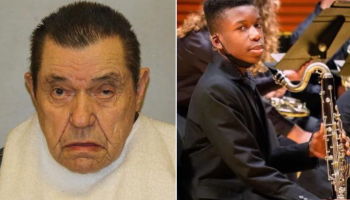By Mark Anthony Neal
The venue was not like any other you might find throughout the country; Late spring at an aquatic center filled with hundreds of kids competing in swimming events. But this was not like any other event. Of the more than 700 competitors, ranging from age 5 to age 19, the vast majority were Black. And the sounds of the swim meet were different also, feeling more like half-time at an HBCU football game, than the usual staid and reserved demeanor found at most swim meets. This was the 8th Annual Black Heritage National Swim Championships, which was held during the Memorial Day holiday weekend at the Triangle Aquatics Center in Cary, North Carolina.
Swimming is not a sport where folk immediately think of a significant Black presence. In fact, one of the dominant stereotypes of Blacks is that they can’t swim, a point that events like the Black Heritage National Championship meet disproves, but nonetheless as a 2008 survey by USA Today detailed, nearly 60 percent of Black children don’t know how to swim (twice the rate of their White peers) and are nearly three times more likely to drown than their White counterparts. These were all issues considered when Kathy Cooper and a group of parents decided to found the Black Heritage National Championship Meet more than eight years ago.
Text continues after gallery …
The first meet was held in Charlotte, North Carolina in 2003 with 10 teams and 104 swimmers. Subsequent meets were held in Goldsboro, North Carolina and Orlando, Florida. By 2009, the first year the meet was held at the Triangle Aquatics Center, the meet featured 30 teams and 758 swimmers, from up and down the East coast and as far west as Illinois. This year, one of the largest contingents of swimmers came from the New England All-stars, a team made up of several smaller swim team in the New England area and their supporters were, by far, the noisiest, armed with a tambourine, frying pan and other assorted noisemakers to urge their swimmers on.
Joe Artis, who had three swimmers at this year’s meet, is one of the parents that has attended the Black Heritage Meet or the Black Nationals, every year since its inception. According to Artis, whose daughters swim for the Theresa Banks Swim Club in Prince Georges County, MD, from the beginning the meet was “fun, very well organized and disciplined.” Like many parents in attendance Artis finds the Black Nationals as a bit of a reprieve from the usual swim competitions where Black swimmers and their parents stand out like the proverbial flies in the buttermilk. As Artis joked, at those other meets it’s not difficult to keep up with his children, “but I’m having trouble finding my kids here.”
As with previous years, the swimmers were feted by appearances by Cullen Jones, the American Record Holder in the 50-Meter Freestyle and 2008 Olympic Gold-Medal winner and Maritza Correia, 2004 Olympic Silver medalist. Both swimmers signed autographs for the younger swimmers and Jones participated in an exhibition swim. Correia was the keynote speaker at a Friday morning breakfast, which paid tribute to minority Swimming pioneers. The National Black Heritage Championship is one of the destinations on the Cullen Jones Diversity tour, which is partnered with USA Swimming’s “Make A Splash” program which is committed to raising safety awareness and a grassroots effort to teach minority children to swim. According to “Make a Splash” one of the critical factors related to drowning deaths is not simply race, but also family. In Black families in which the parents do not swim, less than 10% of the children do.
Even with the important work being done by the Black Heritage National Championship and its partners, parent Joe Artis puts an even finer point on the swim meet’s impact. “It’s another opportunity besides football and basketball that swimming gives us,” Artis says, adding that “ I tell people all the time that you’re not gonna get rich swimming, but you can get a college degree.”
RELATED STORIES
Olympic Gold Medalist Works To Close Racial Gap In Swimming
Black Swimmer Sets National Record
























